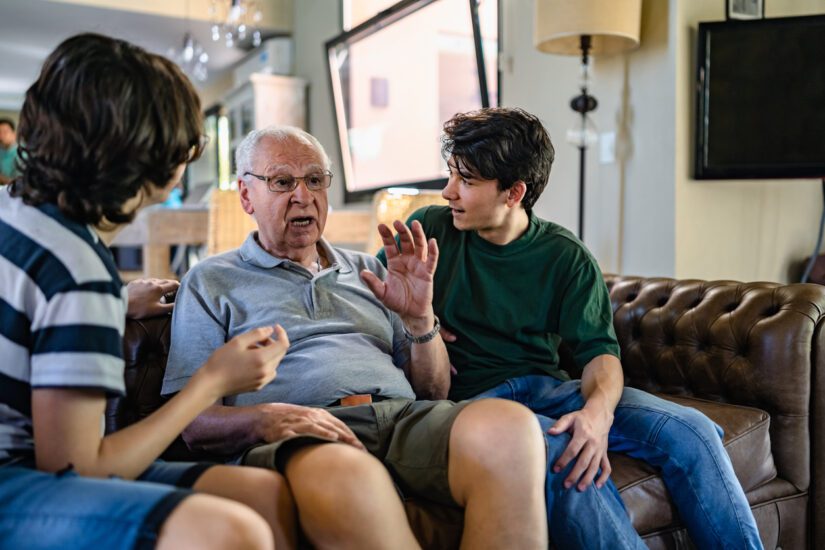Everyone has a great story to tell! Here’s how to harness the incredible power of descriptive language when telling stories to your kids.
Storytelling vs. reading
Before we start, it’s important to recognize the difference between telling a story and reading a story together. Both of them are wonderful activities to do with children, and both have their own unique benefits. However, whereas reading a story to your child helps more with comprehension and writing skills – telling a story can be much more imaginative and, overall, a more performative experience.
For great information on reading books with your kids, check out our blog on the topic: From Screen Time to Page Time: Benefits of Children Reading Books in a Digital Age.
In fact, studies indicate there is indeed a difference between reading and visual storytelling. According to researchers, the data indicates “more sustained brain activation to storytelling in comparison with picture-book reading, suggesting possible advantages of storytelling as a psychological and educational medium in children.” (Yabe et al)
This doesn’t mean that one is better than the other, but rather both storytelling provides its own unique benefits.
True stories are often the most compelling
True stories are often the best ones, especially if they are personal stories we hold close to heart. When you recall a memory from your own life and relay that story to your child, you are essentially giving them a window into your own knowledge and experiences.
In addition, you are also providing your kids an ideal demonstration of how body language, vocal timbre, and overall volume can be used as effective communication skills. This can even help them develop their own public speaking abilities!
Stories are timeless
Every family has a story of a particular family member or event which is remembered fondly. In some cases, the people involved in the story may no longer be with us – but this in itself is a testament to the time-defying power of stories. Whereas our physical bodies may not be around forever, the memories we share will last for generations to come!
Try to think of stories close to your family that have been cherished for years. They can either be personal tales, stories passed down from friends or relatives, or even urban legends. It really doesn’t matter, because when it comes down to it – a great story is a great story! And the more “exclusive” a story is to your family or life, the more your child will absolutely love to hear it.
Here’s a silly example – this author’s grandfather was a huge fan of Frank Sinatra. In the 1940s, poppa (then 15 years old) took a part time job as a theater usher with a single goal in mind: “to see Frank sing.” He knew he’d never be able to afford the cost of a ticket. When Sinatra was finally booked to perform at the venue, poppa accomplished his goal – even if it meant losing his job in the process – and was always happy to retell the grand experience of watching his hero, Frank Sinatra, live on stage in his prime. And although poppa himself has been gone for many years now – this story, one of his fondest memories, lives on.
And that’s what storytelling is all about! If you have a unique story to tell, don’t hesitate to share it with your kids. Stories can provide your children with a wonderful opportunity to share moments they may never have an opportunity to experience for themselves (after all, this author will never get to see Sinatra live!). With any luck, they’ll be sharing those same stories with their kids someday.


